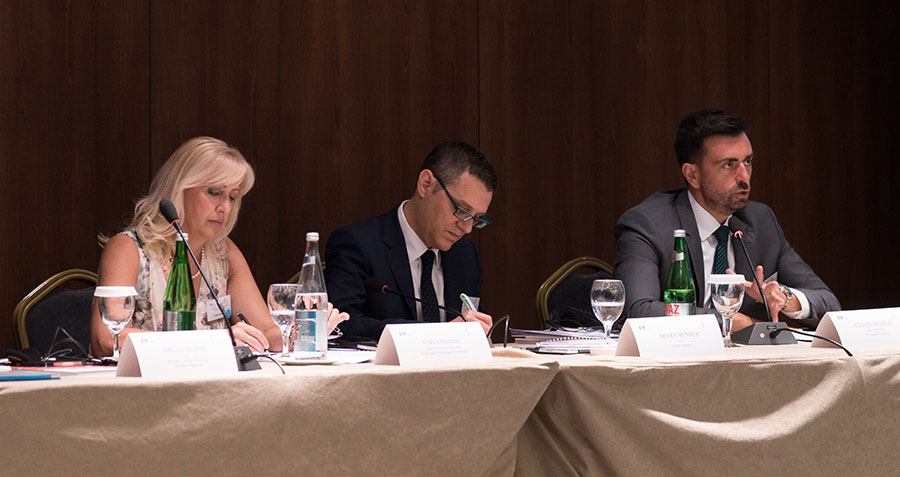The EU will continue to back the reform in education sector through sector budget support and IPA 2014 pre-accession instrument, said Steffen Hudolin of the EU Delegation to Serbia in his opening speech at the conference “National Qualification Framework in Serbia – from development to implementation; improved qualifications through organisation” organised by the European Training Foundation (ETF) in cooperation with Serbian Ministry of Education, Science and Technological Development.
“Additional support of EUR1.5 million, provided through IPA 2014 for establishment of the National Qualifications Framework, will come as of 2018 and will be aimed at: further development of the social partnership concept; introducing instruments for recognition of prior learning; development of a number of qualification standards; and development of institutional capacity,” Hudolin said.
He said that the establishment of a system of qualifications made modernisation of education easier and eventually led to increasing the competitiveness of Serbian economy and the quality of life of its citizens.
Hudolin said that “employment rates in Serbia are indicating a slow recovery, yet the rates of unemployment – particularly among youth – are still disconcerting. There is a noted discrepancy between the competencies needed by employers who are seeking qualified labour force, and the competencies and skills on offer, in particular in view of transversal skills.”
In the education sector, the EU has been by far the biggest donor, Hudolin reminded, adding that the Union “has allocated more than EUR75 million for education reform since 2003. The implemented projects have tackled all levels of education. In view of providing for relevant qualifications, we have invested EUR25 million to support the revision and modernisation of existing curricula and teaching methods in VET schools, as well as to equip schools and provide students with competitive skills.”
In her introductory speech, Assistant Minister for Development and Higher Education, Vesna Mandic, pointed to importance of setting up a single, integral qualifications framework, covering all level and types of qualifications.
“National Qualifications Framework is important not only to us who are directly engaged in education, but also to employers and the labour market and would certainly have a significant impact on a swifter and enhanced employability and development in the Republic of Serbia as a whole. This is why we strive to integrate the NQF into all areas of labour and, acting as social partners, to contribute to shaping the employment policy, particularly with regard to youth,” Mandic said and added that such cooperation is expected to be successful and transparent and established through partnership, allowing Serbia to become an equal member of the European society in the area of qualifications development.
The Ministry has given a green light to cooperation with the ETF, striving to modernise and improve qualifications in Serbia and boost employability. The creation of such a system, which is both flexible and relevant to the labour market, is among the national priorities as outlined in the Strategy for development of education in Serbia 2020.
Senior Advisor for development of human capital of the ETF in Serbia, Sean Mendez, said the ETF was poised to support the Ministry in setting up and implementing the NQF in Serbia with a view to linking Serbia with other countries that already apply such systems, so that the country can join the European qualifications system. To set an example of how to strengthen social partnerships, an inter-ministerial working group will be formed comprised of 20 institutions with a goal of contributing to development and improvement of qualifications and linking the system with the market and employers.
The conference was attended by over 60 participants from various partner institutions such as the representatives of the Ministry of Labour, NQF experts, members of the Council for Vocational Training and Adult Education, representatives of the Institute for Promotion of Education, social partners (representatives of employers and trade unions), National Employment Service, as well as representatives of chambers of commerce and other international organisations.




